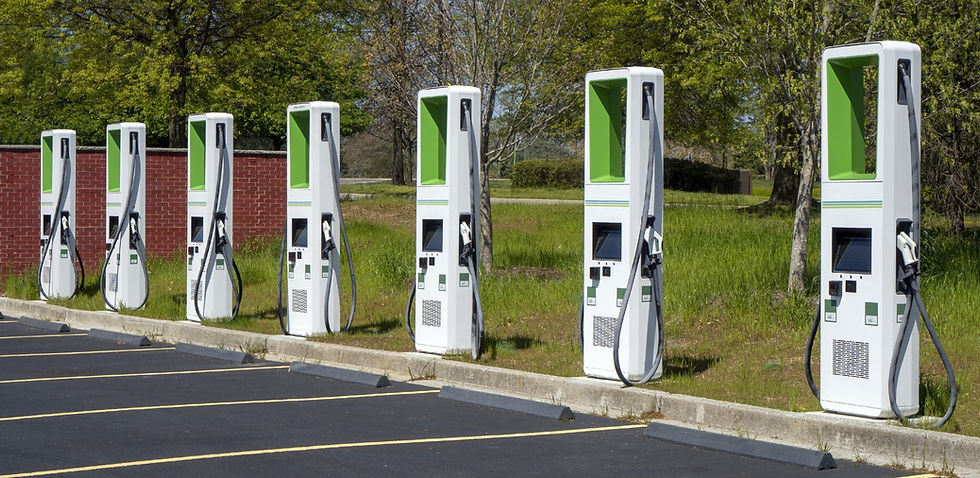Electric Vehicle (EV) Battery Development
- andrewbdavis928
- Dec 12, 2022
- 2 min read

The development of electric vehicle (EV) batteries has come a long way in recent years and continues to be a significant area of focus for researchers and manufacturers. As EVs become more popular, there is a growing need for robust, long-lasting but also affordable, and sustainable batteries.
One of the biggest challenges in EV battery development is finding ways to increase the range of vehicles. Currently, most EVs have a range of around 100 miles on a single charge, which can be limiting for drivers who need to travel long distances. Researchers are developing new battery technologies that can increase the range of EVs to 300 miles or more on a single charge. This would make EVs a more viable option for a broader range of consumers.
Another challenge in EV battery development is improving the charging time. It can take several hours to fully charge an EV battery, which can be inconvenient for drivers. Researchers are developing new technologies that can reduce charging times to as little as 20 minutes or less. This would make EVs more practical for everyday use.
In addition to improving the performance of EV batteries, researchers are also focused on making them more sustainable. Currently, the production of EV batteries is energy-intensive and can generate significant carbon emissions. Researchers are looking for ways to reduce the environmental impact of battery production, for example, by using renewable energy sources and sustainable materials.
Overall, the future of EV battery development looks promising. As the demand for EVs grows, researchers and manufacturers will continue to innovate and develop new technologies that make EVs more powerful, affordable, and sustainable. These advancements will help to accelerate the transition to a more eco-friendly transportation system.




Overwhelmed by nursing assignments? Get expert nursing assignment help from our Aussie-qualified writers. We deliver plagiarism-free, well-researched, and timely papers, providing 24/7 support and affordable solutions to help you excel academically without stress.
Great article! The detailed breakdown of EV battery development—especially the focus on energy density, thermal management, and sustainability—offers a clear picture of the innovations shaping the future of electric mobility. It’s encouraging to see how research and development are pushing the boundaries to make electric vehicles more efficient and eco-friendly.
As a student studying energy technologies, I often come across complex topics like this in academic tasks. For anyone managing similar assignments, finding assignment writing services that truly understand technical subjects can make a real difference. This blog actually helped clarify a few points I’ll be including in my next paper!
karatetoto karatetoto karatetoto karatetoto karatetoto karatetoto karatetotositus toto situs toto situs toto situs toto situs toto situs toto situs toto slot gacor slot gacor slot gacor slot gacor slot gacor slot777
link link link link link link link link link link link link link link link link link link link link link link link link link link link link link link link link link link link link link link link link link link link link link link link link link link link link link link link link link link link link link link link link link link link link link link link link link link link link link link link link link link link link link link link link link link link link link link link link link link link link
The development of electric vehicle (EV) batteries is a significant step towards a more sustainable future, reducing reliance on fossil fuels and lowering carbon emissions. Similarly, advancements in healthcare, such as understanding and treating voice disorders like laryngitis, play a crucial role in improving quality of life. Just as EV battery technology is evolving to be more efficient and durable, treatments for conditions like laryngitis are becoming more effective, helping https://www.nursingpaper.com/examples/a-voice-disorder-laryngitis-essay/ individuals regain their health and vocal function. Both fields emphasize progress through innovation, whether in technology or healthcare, to create lasting positive impacts on society.